Enhancing vocabulary Building Vocabulary Worksheets for Ages 3-7
5 filtered results
-
From - To
Boost your child's language development with our expertly designed "Building Vocabulary Worksheets" for ages 3-7! Kids Academy's printable resources provide engaging and age-appropriate activities to enhance vocabulary skills. These worksheets feature vibrant images and cutting-edge exercises, making learning fun and effective. Perfect for early readers, they help youngsters grasp new words, improve comprehension, and foster a lifelong love for reading. Whether at home or school, discover how our enhancing vocabulary worksheets can support your child's linguistic journey, paving the way for academic success. Explore and download our diverse selection today for free, easy, and impactful learning!
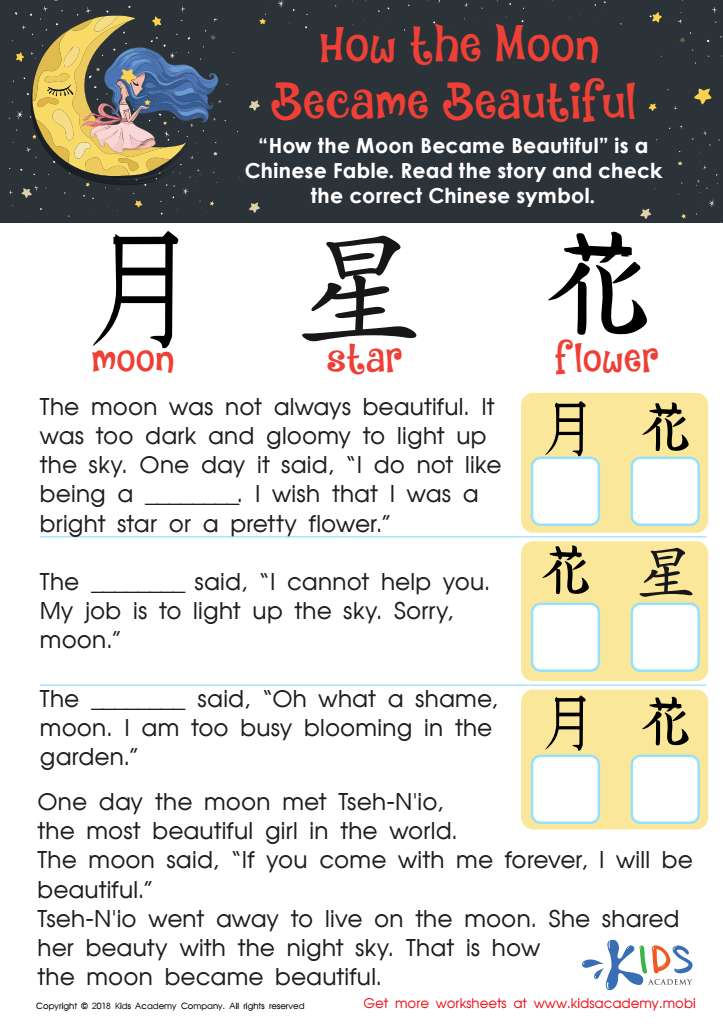

How the Moon Became Beautiful Worksheet
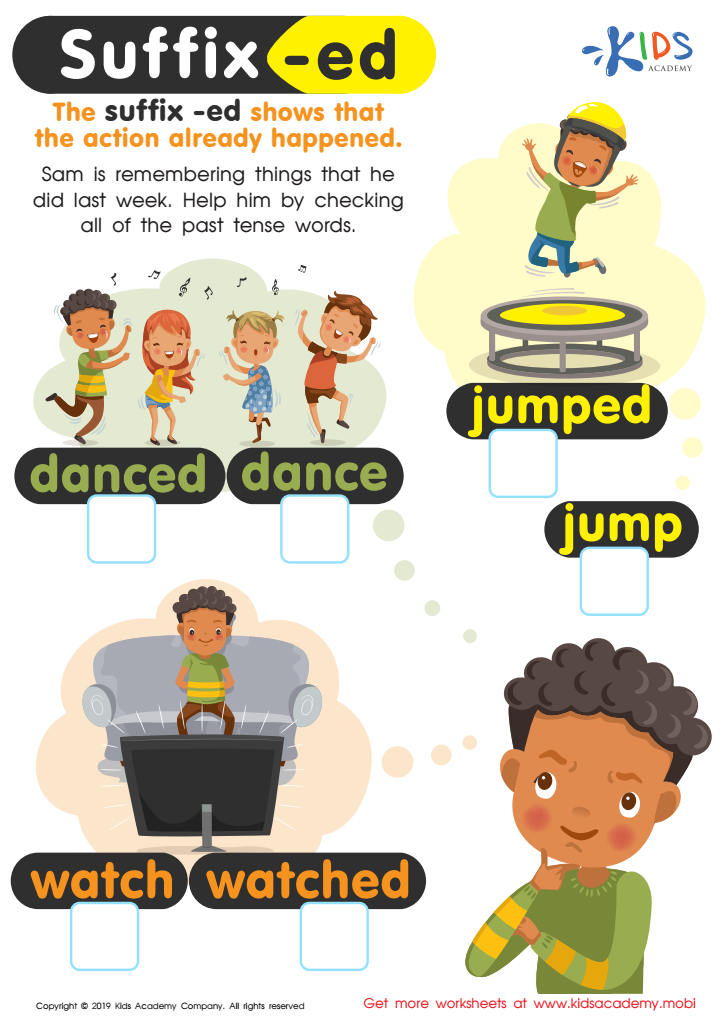

Suffix-ed Worksheet
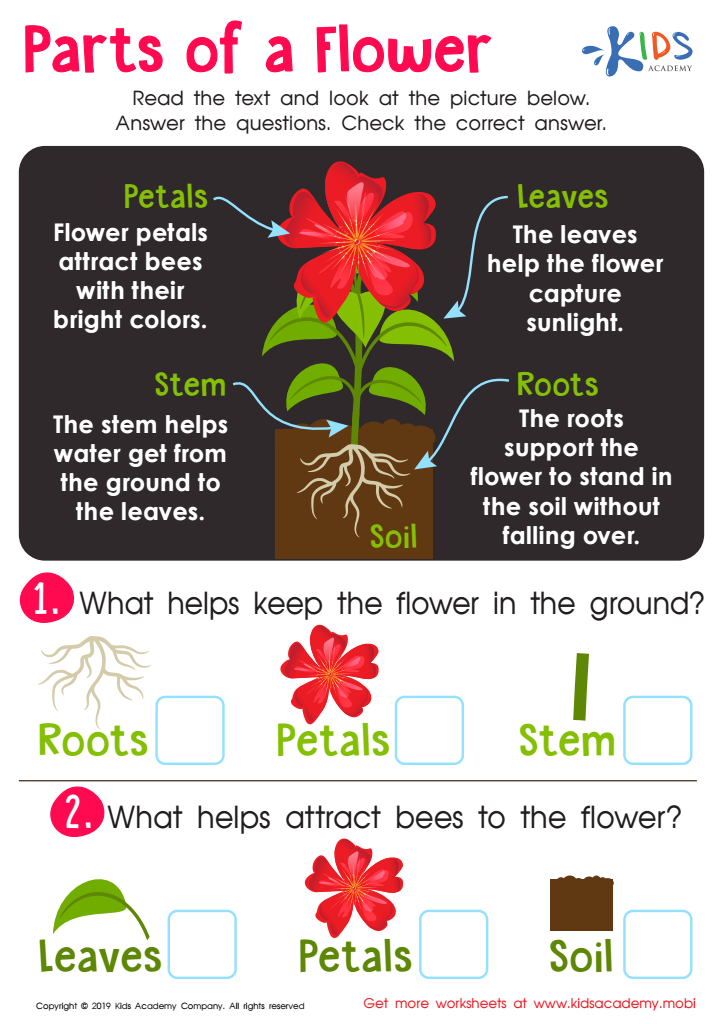

Parts of Flower Worksheet
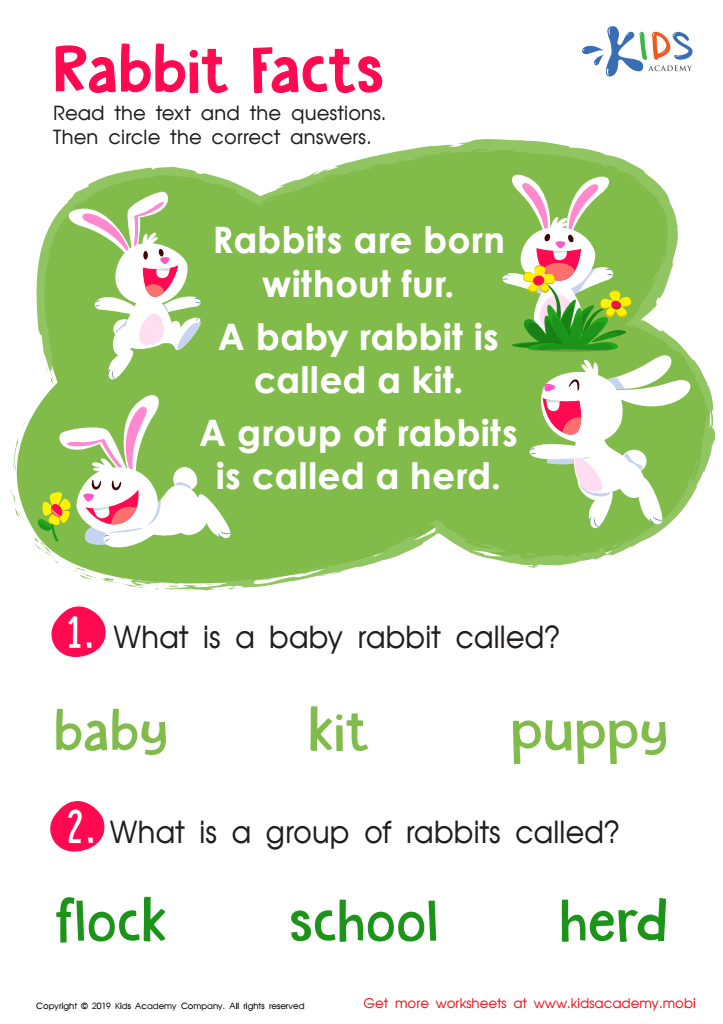

Rabbit Facts Worksheet
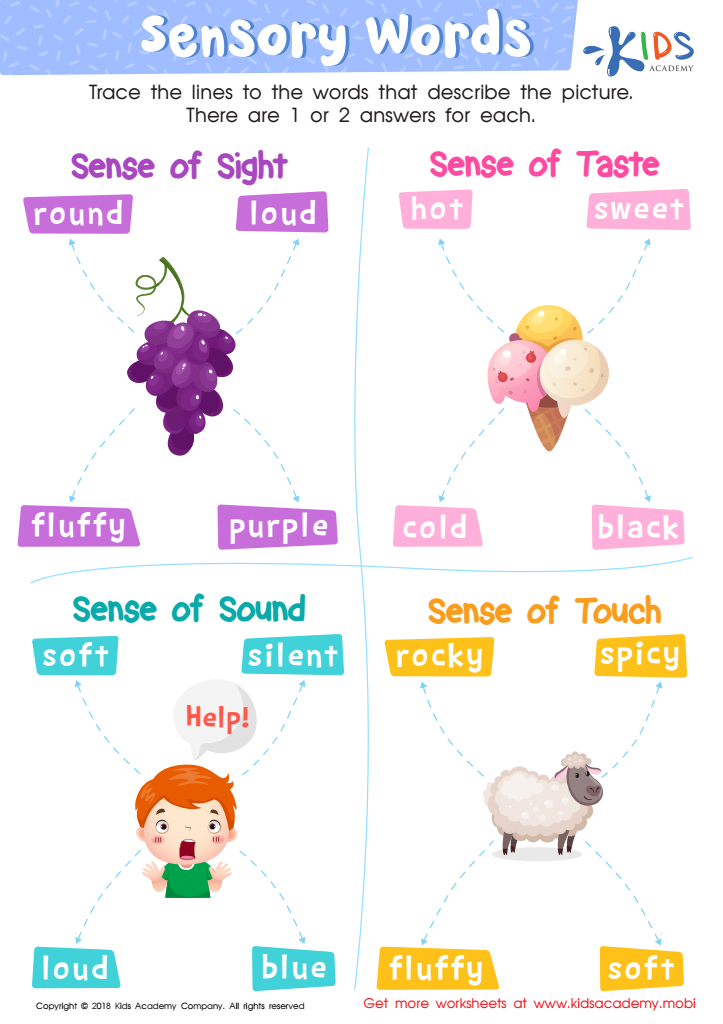

Sensory Words Worksheet
Enhancing vocabulary for children ages 3-7 is crucial for their overall language development, literacy, and cognitive growth. At this developmental stage, children are rapidly absorbing new information, and a rich vocabulary serves as the building blocks for effective communication, reading skills, and comprehension.
For one, a robust vocabulary enhances a child’s ability to articulate thoughts, feelings, and experiences clearly and accurately. This fosters better relationships and social interactions. Furthermore, vocabulary is strongly linked to academic achievement. Children with a well-developed vocabulary tend to have an easier time learning to read because they can better recognize and understand words, aiding in phonemic awareness and decoding skills.
Moreover, vocabulary growth supports cognitive skills by exposing children to new concepts and ideas. It allows for better understanding and interactions with their environment, nourishing curiosity and intellectual engagement. Storytelling, conversations, and reading foster creativity and imaginations, which are vital at this age.
Parents and teachers who prioritize vocabulary enhancement help bridge potential socio-economic and educational gaps. Inclusive, diverse vocabulary instruction in early childhood sets children on a successful academic and life trajectory, equipping them with the tools needed to navigate and express themselves in an increasingly complex world.
 Assign to My Students
Assign to My Students

















